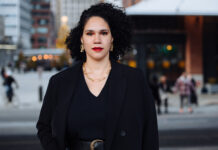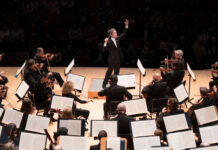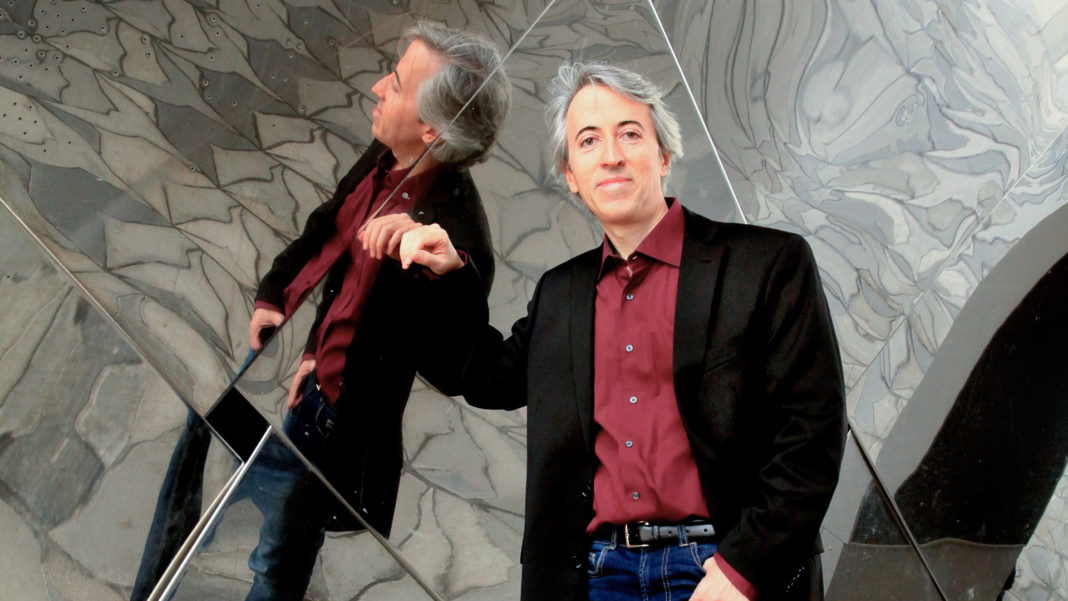For Argentinian composer Esteban Benzecry, patience has proven to be a virtue. On Thursday night the Los Angeles Philharmonic will finally have the world premiere of his piano concerto, Universos infinitos, which was written 8 years ago. Gustavo Dudamel will be conducting and Sergio Tiempo will be the soloist. As one of the most often performed composers from South America, it may have come as a surprise to have his concerto’s premiere delayed for so long.
This was amongst the questions I asked him via e-mail earlier this week. We also talk about the concerto itself and his working relationship with Gustavo Dudamel. My questions and his answers were translated to and from Spanish.
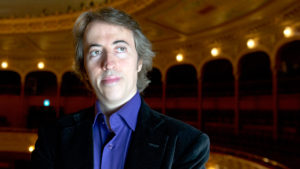
What took so long to finally premiere the concerto and did you make any changes between when you completed it and now that it is having its first performance?
The original project emerged in 2011 and was a piano concerto that would be premiered by Lang Lang in April 2013 in Caracas with the Simon Bolívar Orchestra conducted by Dudamel and then premiere in Los Angeles in May 2014 with the LA Philharmonic. But a month before the premiere Lang Lang apologized that he had no time to prepare new works. Dudamel immediately thought of Sergio Tiempo as the ideal soloist for this concerto, but the work was archived for several years until a date for the premiere could be finalized. In the life of a composer, this type of postponement is very common.
You ended up dedicating this concerto to Sergio Tiempo. What excites you about his way of playing and why did you dedicate the piece to him?
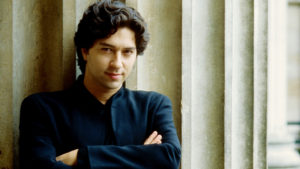
Sergio has an incredible energy and transmits a lot of joy. [He’s a] native of Venezuela, but from Argentine parents. We have known each other since we were very young. For some time I wanted to write a work for him. I am very happy that fate brings us together this way. He is really the ideal soloist for my concerto.
At the same time Universos infinitos is having its world premiere, John Leguizamo’s Latin History for Morons is being performed across the street. Both works share a perspective on the indigenous people of the Americas. Notes on the concerto say it incorporates “roots, rhythms, melodies and mythology of indigenous America as a fount of inspiration.” What do you think audiences should take away from this source of inspiration to understand more about indigenous people of the Americas?
It takes certain roots, rhythms, melodies or mythologies of South America but as a source of inspiration to develop my own language, and this fusion between these roots and the procedure of contemporary European music would result in imaginary folklore. In South American we have a folklore that is still very lively that we can nurture, but many times we do not value it and imitate Europeans. My idea is to enrich myself by nourishing myself between these two worlds. If these influences that should seem natural to Latin America continue to be exotic, perhaps it is our fault for having a derogatory view of our culture.
This concert has a Venezuelan soloist in Tiempo, a Venezuelan conductor in Dudamel and an Argentinian composer in yourself. What does this say about the caliber of artists coming from South America and what does the future hold for other South American artists?
[The continent on] America is a very fertile land in every way. There is a lot of creativity and a lot of talent. Great figures like Dudamel and Sergio Tiempo have emerged and generate expectations that open more doors for us. Today the world has a different view towards us. We have an upward reputation that we owe, in large part, to the great work of Maestro Abreu, raising the level of the youth orchestras that are today a musical model throughout the world.
Note: José Antonio Abreu was a Venezuelan conductor, pianist and educator best known for El Sistema. This was a music education program publicly financed in Venezuela. It began its life in 1975. Amongst his students in this program was Gustavo Dudamel.
You have collaborated several times with Gustavo Dudamel. How did your first collaboration come about and what makes him a good interpreter of your music?
Gustavo conducted for the first time my work Colores de la Cruz del Sur at the Latin American Music Festival of Caracas in 2004. Then in January 2010 I premiered my symphonic triptych, Rituales Amerindios. The Gothenburg Orchestra commissioned me [to write this]. This work was also presented at the LA Philharmonic. In May 2010 I had my first LA Philharmonic commission for the Green Umbrella program. Gustavo is a musical friend, a great interpreter of my music and I feel privileged to have his support. He gives the necessary energy that my music needs where wild rhythms and exuberant colors abound, but the most important thing is that I feel he enjoys making my music.
Dudamel once said, “when people feel that something really special is happening on the stage, things change.” What special thing do you hope will happen at the world premiere of Universos infinitos and what, if any, change would you like it to inspire?
A journey through different sensations. Music is a gift that nobody can explain where it comes from. There is no autopsy that can determine why such combinations of notes arise from silence. Creation is a mystery of the universe that perhaps does not belong to us. We are only receivers from those sounds we transmit. I simply wish that people can connect with music and travel through its different sound landscapes.
Main photo of Esteban Benzecry by Alita Baldi. All photos of him courtesy of the Los Angeles Philharmonic Association.
Photo of Sergio Tiempo courtesy of Rayfield Allied.


